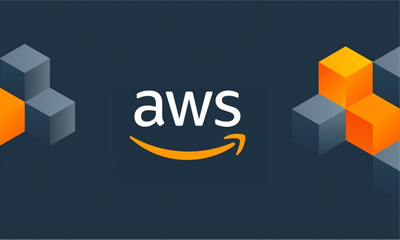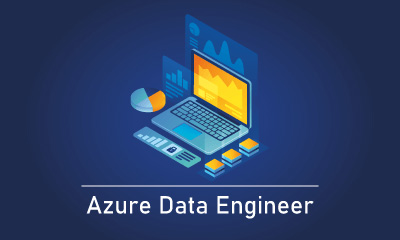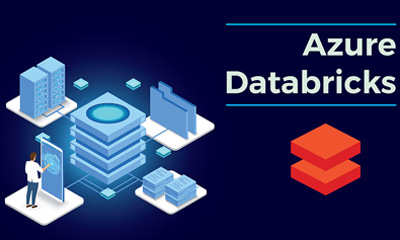Google Cloud Certified Professional Data Engineer
This comprehensive Google Data Engineer course is designed to equip participants with the knowledge and skills required to become proficient data engineers on the Google Cloud Platform (GCP). The course covers data engineering concepts, tools, and best practices, with a strong emphasis on hands-on learning and real-world applications.
Course Rating :
4.8 (926)

Course Overview
This comprehensive Google Data Engineer course is designed to equip participants with the knowledge and skills required to become proficient data engineers on the Google Cloud Platform (GCP). The course covers data engineering concepts, tools, and best practices, with a strong emphasis on hands-on learning and real-world applications. By the end of the course, participants will be prepared to tackle the Google Cloud Professional Data Engineer certification exam and excel in data engineering roles.
Key Points
Introduction to Data Engineering:
- Understanding the role of a data engineer
- Overview of data engineering on Google Cloud Platform (GCP)
Google Cloud Platform (GCP) Fundamentals:
- Introduction to GCP
- Key GCP services for data engineering
Storage and Databases:
- Google Cloud Storage
- BigQuery
- Cloud SQL
- Cloud Spanner
Data Processing and Analysis:
- Dataflow
- Dataproc
- Apache Beam
Data Ingestion:
- Cloud Pub/Sub
- Data Transfer Service
- Cloud Composer (Apache Airflow)
Machine Learning on GCP:
- BigQuery ML
- AI Platform
- Pre-trained ML APIs
Data Security and Governance:
- Identity and Access Management (IAM)
- Data encryption and security
- Data governance and compliance
Monitoring and Troubleshooting:
- Stackdriver Logging and Monitoring
- Debugging data pipelines
- Performance tuning
Best Practices and Case Studies:
- Designing scalable data pipelines
- Cost optimization strategies
- Real-world case studies
Preparing for the Google Cloud Professional Data Engineer Exam:
- Exam format and structure
- Study strategies and resources
- Practice questions and mock exams
Course Curriculum
Introduction to Data Engineering
- What is data engineering?
- The role of a data engineer
- Importance of data engineering in modern businesses
Introduction to Google Cloud Platform (GCP)
- Overview of cloud computing
- Introduction to GCP and its key services
- Navigating the GCP Console
Setting Up Your GCP Account
- Creating a GCP account
- Understanding billing and cost management
- GCP Free Tier and resources
Google Cloud Storage
- Introduction to Cloud Storage
- Creating and managing buckets
- Uploading, downloading, and managing data
Google BigQuery
- Introduction to BigQuery
- Creating and managing datasets and tables
- Writing SQL queries in BigQuery
Google Cloud SQL
- Introduction to Cloud SQL
- Setting up and managing databases
- Basic SQL operations
Google Cloud Spanner
- Introduction to Cloud Spanner
- Creating and managing instances and databases
- Cloud Spanner vs. Cloud SQL
Introduction to ETL (Extract, Transform, Load)
- Understanding ETL processes
- Importance of ETL in data engineering
Dataflow and Apache Beam
- Introduction to Dataflow
- Basics of Apache Beam
- Building and running data pipelines
Dataproc and Apache Hadoop/Spark
- Introduction to Dataproc
- Basics of Hadoop and Spark
- Creating and managing Dataproc clusters
Cloud Data Fusion
- Introduction to Cloud Data Fusion
- Building ETL pipelines with Data Fusion
- Data Fusion vs. Dataflow
Cloud Pub/Sub
- Introduction to Cloud Pub/Sub
- Creating and managing topics and subscriptions
- Streaming data ingestion with Pub/Sub
Data Transfer Service
- Introduction to Data Transfer Service
- Transferring data from external sources to GCP
- Scheduling and managing data transfers
Cloud Composer (Apache Airflow)
- Introduction to Cloud Composer
- Creating and managing workflows with Airflow
- Orchestrating data pipelines
BigQuery ML
- Introduction to BigQuery ML
- Building and training machine learning models in BigQuery
- Evaluating and deploying models
AI Platform
- Introduction to AI Platform
- Building and deploying ML models with AI Platform
- Using pre-trained ML APIs
Advanced Analytics with BigQuery
- Advanced SQL techniques in BigQuery
- Using BigQuery for data exploration and visualization
- Integrating BigQuery with BI tools like Looker and Data Studio
Identity and Access Management (IAM)
- Introduction to IAM
- Setting up roles and permissions
- Managing user access and security
Data Encryption and Security
- Understanding data encryption
- Implementing encryption in GCP
- Best practices for data security
Data Governance and Compliance
- Importance of data governance
- Tools for data governance in GCP
- Ensuring compliance with regulations (GDPR, HIPAA, etc.)
Stackdriver Monitoring and Logging
- Introduction to Stackdriver
- Setting up monitoring and alerts
- Logging and log analysis
Debugging Data Pipelines
- Common issues in data pipelines
- Tools and techniques for debugging
- Best practices for error handling
Performance Tuning
- Identifying performance bottlenecks
- Optimizing data processing workflows
- Cost management and optimization
Designing Scalable Data Pipelines
- Principles of scalable pipeline design
- Choosing the right tools and services
- Case studies of scalable data architectures
Cost Optimization Strategies
- Understanding GCP pricing models
- Strategies for cost-effective data processing
- Monitoring and controlling costs
Real-world Case Studies
- Detailed analysis of successful data engineering projects
- Lessons learned and best practices
- Applying case study insights to your projects
Exam Overview
- Structure and format of the certification exam
- Key topics and skills assessed
Study Strategies and Resources
- Recommended study materials and resources
- Effective study strategies and tips
- Practice exams and mock tests
Final Project
- Defining a real-world data engineering project
- Building and deploying a data pipeline using GCP services
- Presenting and evaluating the project
Final Review and Certification
- Course recap and key takeaways
- Certification exam and project presentation
- Awarding of certificate of completion
- Networking and community building opportunities
Learning Outcome
By the end of this course, participants will be able to:
- Understand the core principles of data engineering and the role of a data engineer.
- Use Google Cloud Platform (GCP) services to design, build, and manage data processing systems.
- Store and manage data using GCP’s storage solutions like Cloud Storage, BigQuery, Cloud SQL, and Cloud Spanner.
- Process and analyze large datasets using tools like Dataflow, Dataproc, and BigQuery.
- Implement data ingestion pipelines using Cloud Pub/Sub, Data Transfer Service, and Cloud Composer.
- Apply machine learning techniques on GCP using BigQuery ML and AI Platform.
- Ensure data security, compliance, and governance in data engineering solutions.
- Monitor and troubleshoot data engineering workflows using Stackdriver.
- Follow best practices for designing scalable and cost-effective data pipelines.
- Prepare effectively for the Google Cloud Professional Data Engineer certification exam.
Who this course is for?
Aspiring Data Engineers: Individuals looking to start a career in data engineering.
Data Analysts: Professionals aiming to enhance their skills and transition to data engineering roles.
Software Engineers: Developers seeking to expand their knowledge in data processing and cloud computing.
IT Professionals: Technicians and administrators interested in leveraging GCP for data engineering tasks.
Business Intelligence Specialists: BI professionals looking to integrate GCP into their workflows.
Students and Graduates: Individuals pursuing studies in computer science, data science, or related fields.
FAQs
Basic knowledge of cloud computing and data processing concepts is recommended. Familiarity with Python and SQL will be helpful.
The course is designed to be completed in 12 weeks, with a commitment of 5-7 hours per week.
Yes, the course includes practical labs and projects to apply the concepts learned in real-world scenarios using GCP.
You will need a computer with internet access. Access to Google Cloud Platform will be provided, and some tools and resources will be available online for free.
Yes, you will have lifetime access to the course materials, including video lectures, slides, and code examples.
Participants will have access to discussion forums, live Q&A sessions, and direct support from instructors.
Yes, there will be a final project that requires participants to design and implement a data pipeline using GCP services. There will also be a mock certification exam.
Certifications
Participants who successfully complete the course will be prepared to take the following certification:
Google Cloud Professional Data Engineer Certification:
Description: The Google Cloud Professional Data Engineer certification demonstrates proficiency in designing, building, and operationalizing data processing systems on GCP. It validates the ability to make data-driven decisions by collecting, transforming, and publishing data.
Key Topics:
- Designing data processing systems
- Building and operationalizing data processing systems
- Operationalizing machine learning models
- Ensuring solution quality
Preparation Resources:
- Google Cloud Professional Data Engineer Exam Guide
- Official training courses and study materials
- Practice exams and hands-on labs
Certification Link:
- Google Cloud Professional Data Engineer
Recommended Background
Basic Data Processing Knowledge:
- Understanding of data formats (CSV, JSON).
- Basic concepts of data processing and transformation.
Introductory Knowledge of Machine Learning:
- Familiarity with basic machine learning concepts (optional, but beneficial).
Technical Skills and Tools
- Basic Python Skills:
- Understanding Python syntax and basic data structures (lists, dictionaries).
- Writing simple Python scripts for data manipulation.
- SQL Querying:
- Writing basic SQL queries to retrieve data.
- Performing simple data operations using SQL.
Soft Skills
- Problem-Solving Skills:
- Ability to approach and solve technical problems systematically.
- Analytical thinking for data-related challenges.
- Willingness to Learn:
- Eagerness to learn new tools, technologies, and methodologies.
- Open-mindedness to adapt to the fast-evolving data engineering landscape.
Tools and Environment Setup
- Google Cloud Platform Account:
- Setting up a GCP account (GCP Free Tier provides initial credits for hands-on practice).
- Basic Software:
- Installation of a code editor (e.g., VSCode, PyCharm).
- Access to a web browser for GCP Console and documentation.
Resources for Preparation
- Online Tutorials and Courses:
- Basic Python courses on platforms like Coursera, edX, or Codecademy.
- Introductory SQL courses on Khan Academy or W3Schools.
- Introduction to cloud computing courses on Coursera or Google Cloud Skill Boost.
- Documentation and Guides:
- Google Cloud Platform documentation.
- Python and SQL reference guides.
- Practice Exercises:
- Hands-on coding exercises in Python.
- Practice SQL queries using online SQL playgrounds.
Enroll Free Demo Class
Have Any Questions ?
- 521 Dyson Rd HainesCity FL 33844
- info@rbcloudgenx.com
- +1 8043007153
Prerequisites
Basic Computer Skills:
- Familiarity with operating systems (Windows, macOS, Linux).
- Basic understanding of file systems and command-line interfaces.
Basic Programming Knowledge:
- Understanding of programming concepts (variables, loops, functions).
- Experience with a programming language, preferably Python.
SQL and Database Fundamentals:
- Basic knowledge of SQL (Structured Query Language).
- Understanding of database concepts (tables, joins, indexing).
Fundamentals of Cloud Computing:
- Basic understanding of cloud computing concepts.
- Familiarity with any cloud platform (optional, but beneficial).
Our Other Courses
The AWS Data Engineering course is designed to provide in-depth knowledge and practical skills required to build, maintain, and optimize data pipelines.
In this Azure Data Engineering training course, the student will learn how to implement and manage data engineering workloads on Microsoft Azure.
RBCloudGenX Snowflake training Online is aligned with the latest curriculum of the Snowflake certification exam.
RBCloudGenX Databricks course is designed to equip learners with the knowledge and skills necessary to work with Apache Spark and Databricks.
Rate This Course !
Click on a star to rate it!
Average rating 0 / 5. Vote count: 0
No votes so far! Be the first to rate this post.





